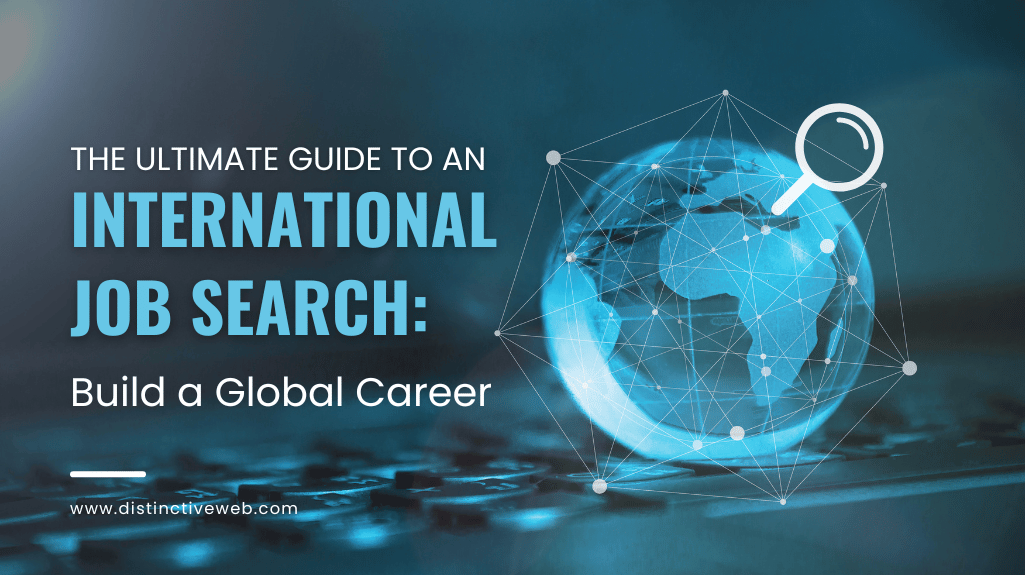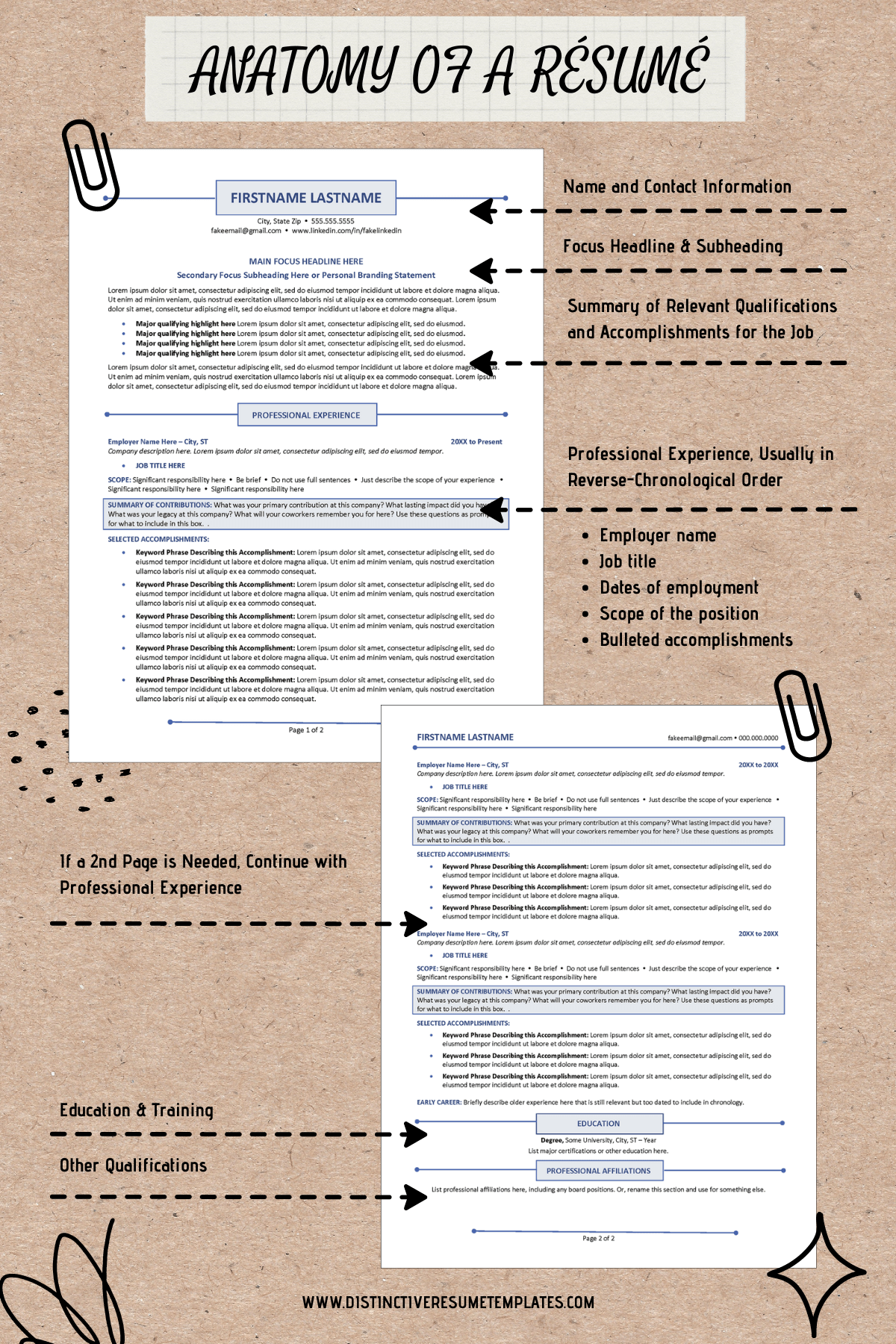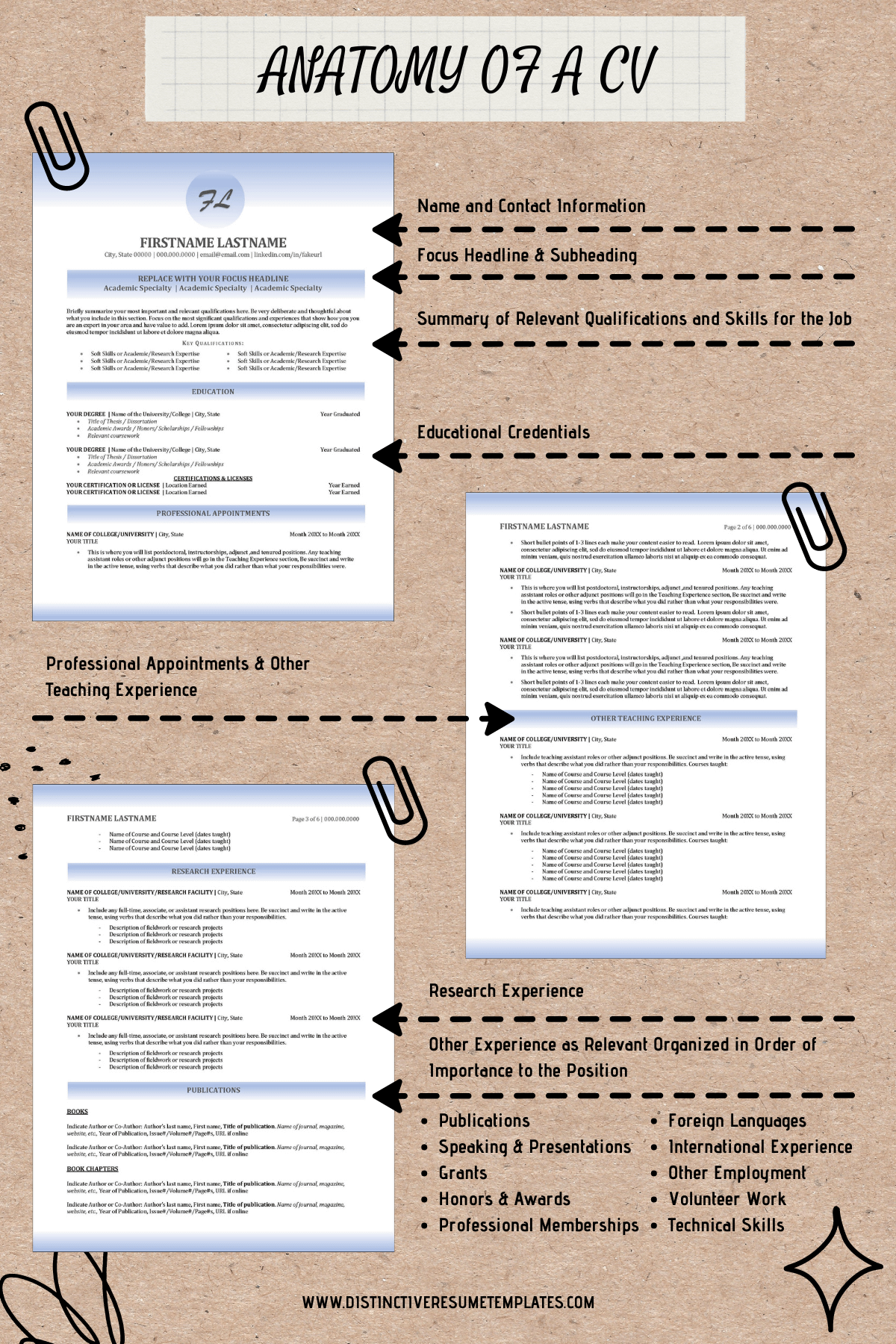
In an increasingly globalized world, the prospect of working internationally has never been more alluring or accessible. Whether it’s the charm of Parisian cafes, the bustling markets of Shanghai, or the financial powerhouses of London, opportunities abound beyond the borders of your home country.
Are you an ambitious professional craving a taste of the foreign, keen to broaden your horizons and boost your career prospects?
Even if you answer these questions with an enthusiastic “yes,” if you are like many people, the desire to work abroad and the know-how to make your desire a reality are two different things.
Does the thought of starting your international job search seem daunting?
Are you unsure where to look for international jobs or how to apply for them?
Maybe you’re worried about the legal requirements for working in another country, or you’re not confident about crafting a resume tailored for an international audience. These concerns are valid. Embarking on an international job search is a bold step, but it’s also a leap into the unknown.
However, armed with the right tools, knowledge, and mindset, you can turn this challenge of navigating the often complex but always-exciting journey of seeking employment abroad into a transformative, career-advancing experience.
The Appeal of Landing an International Job
More and more professionals, from recent graduates to experienced executives, are looking beyond their borders to take their careers to new heights. According to the Association of American Residents Overseas, an estimated 8.7 million American expats live and work abroad in more than 160 countries. But what exactly makes working in a foreign country so appealing?
Accelerating Your Career with International Exposure
First and foremost, working internationally can offer a career boost and enhance your resume. Not only does it multiply the career opportunities available to you, but it also provides exposure to new work cultures, practices, and industry trends, which can significantly broaden your perspective. A stint overseas shows future employers that you’re adaptable and aren’t afraid of stepping out of your comfort zone—qualities highly sought after in today’s dynamic professional landscape.
Cultural Immersion and Enhanced Foreign Language Proficiency
Next, there’s the allure of personal growth. Living and working in a new country introduces you to new cultures and ways of life, fostering a more profound understanding of the world around you. You’re likely to develop strong problem-solving skills and a high level of cultural competence, skills of which are valuable in any professional setting. Living abroad also often provides opportunities to build fluency in foreign languages, a skill that is personally and professionally valuable.
Building Your Network on an International Scale
The opportunity for worldwide networking is another major draw. Working internationally allows you to build professional relationships in a global context. These networking opportunities and connections can open doors to future opportunities to work abroad, provide invaluable insights into international markets, and offer a new dimension to your professional identity.
Attractive Compensation Packages and Improved Quality of Life
Then there’s the financial incentive. International positions can offer attractive compensation packages depending on the country and industry. According to HSBC, the average expat adds an extra $21,000 to their annual salary for overseas jobs. Besides a potentially higher salary, these may include benefits like housing allowances, relocation assistance, and international school fees, which can significantly enhance your overall quality of life. Another financial benefit is realized when the expat destination has a lower cost of living than the expat’s home country, allowing for a higher standard of living.

The Global Adventures of the Expat Experience
Lastly, and perhaps most enticing, is the adventure. Accepting a job abroad is not just about climbing the corporate ladder; it’s also about experiencing life in a new place. It’s about weekend trips to exotic destinations, trying new cuisines, making friends from diverse backgrounds, and creating memories that last a lifetime.
It’s important to note that international job searching isn’t always smooth sailing, and success requires careful planning and perseverance. But as many who’ve embarked on this journey will tell you, the potential personal and professional rewards are well worth the effort. In the following sections, we’ll guide you through the steps to help you navigate this thrilling endeavor.
Where to Start: Researching International Job Opportunities
The world is a vast place teeming with international employment opportunities, but knowing where to start is the key to a successful search for new jobs abroad. Understanding the global job market can seem like a Herculean task, but it becomes manageable and even exciting with the right approach and tools.
Mapping Out Your International Ambitions
The first step in this process is to identify your professional goals. What are your career objectives? What kind of role or job title are you looking for? Which industries or sectors align with your expertise and interests? By answering these questions, you can start to narrow down the countries that offer the best opportunities in your field.
Identifying Global Hotspots
Once you’ve defined your career objectives, you’ll want to identify key regions or countries that are thriving in your industry. For instance, if you’re in tech, countries like Canada, Germany, or Singapore could be ideal due to their thriving tech scenes. If you’re into finance, cities like London, Hong Kong, or Zurich might be on your radar.
Language Considerations
Another critical factor to consider is the local language. Are you multilingual, or are you mainly comfortable in English? While English is a global business language, certain regions might require fluency in the local language. However, many countries also offer opportunities in English, especially in industries like IT, finance, and tourism.
Making the Most of International Job Sites
Next, dive into country-specific job boards and international job search sites. Platforms like LinkedIn, Indeed Worldwide, and Glassdoor have extensive listings for international employment opportunities. But don’t stop there. Explore country or region-specific job sites too. For instance, Europe’s EURES Job Mobility Portal, Canada’s Job Bank, or Australia’s Seek can offer valuable insights into local markets. Some other international job sites and helpful resources for global job seekers include:
Also, make use of industry-specific websites and forums. These sites often post job listings and can provide a wealth of information about working in specific fields and countries.
Leveraging Connections for International Prospects Around the World
Don’t forget the power of networking. Online and offline professional connections can provide insider tips and may even lead you to opportunities not advertised publicly. LinkedIn is an excellent tool for networking. You can also contact local industry groups or expat communities for advice and potential leads.
Embarking on an international job search is an adventure, and like any great adventure, it starts with thorough preparation and research. The more you understand the global job market, the better equipped you’ll be to navigate it successfully.
Legal Know-How to Work Abroad
Embarking on an international job search requires navigating a new set of rules and regulations. Before you pack your bags, it’s crucial to understand the legal requirements you’ll need to fulfill to work in a different country. Here are a few key considerations.
Work Visas & Permits
Every country has its own rules for employing foreign nationals, and these often hinge on the type of work visa or permit you can secure. Some common types of work visas include:
Securing a visa often involves demonstrating your qualifications, job offer details, and sometimes even language proficiency. Each country has its own processing times, so plan accordingly.
An excellent resource to learn about work visas and other legal requirements to work in another country is VisaGuide.World. Another helpful resource site is Transitions Abroad which provides information about the purpose of work permits, the application process, and what you need to know to procure a work permit successfully.
Taxes
It’s essential to understand your tax obligations when working abroad. In some cases, you might have to file tax returns in both your home and host countries. The United States has tax treaties with several countries to avoid double taxation, but it’s still important to understand what’s expected of you.
Some additional resources to learn about this topic include US Taxes Abroad for Dummies, Working Abroad: A Guide to Remote Work Taxes, and the IRS’s Frequently Asked Questions (FAQs) About International Individual Tax Matters.
Social Security and Benefits
Understanding your entitlement to social security benefits in the host country is important. For U.S. citizens working abroad, there are agreements (known as Totalization Agreements) with certain countries to help determine which country’s social security laws apply to your employment.
This webpage from the Social Security Administration (SSA) provides information on receiving Social Security payments outside the US for eligible US citizens. Another helpful resource is this booklet from the SSA explaining how being outside the US may affect your Social Security payments and providing the information you need to know while living abroad.
Employment Laws
Familiarize yourself with the employment laws of the host country. Understand the rules regarding work hours, overtime, holidays, and the minimum wage. Also, knowing your rights and protections as a foreign worker is critical.
A helpful resource in this area includes this publication providing an understanding of non-standard employment across different countries and regions.
Health Insurance
Ensure you have adequate health insurance coverage. While some countries have reciprocal healthcare agreements, it’s crucial to understand what’s covered and consider whether additional private insurance might be necessary.
Navigating these legal requirements can seem complex, but with careful planning, it doesn’t have to be a deterrent. Many countries offer resources to help foreign workers understand their legal obligations. Embassies, consulates, and official immigration websites are good starting points.
Remember, the goal is not just to find a job but to ensure you can live and work comfortably and legally in your new environment.
Crafting a Competitive International Resume
Positioning yourself as a leading candidate in various countries necessitates a comprehensive and culturally-aware resume.
But, just as job markets vary worldwide, so do resume expectations. What works well in North America might not have the same impact in Japan, Germany, or Dubai.
Crafting a competitive international resume goes beyond simple translation—it requires careful consideration of cultural nuances, local business practices, and even layout preferences. Here are a few tips to help you create a resume that shines no matter where you apply.
Should You Submit a Resume or a CV?
While the terms might often be used synonymously, in the United States and some other countries, there’s a clear distinction between a resume and a CV (curriculum vitae). In short, both a CV and a resume serve as tools to market oneself to potential employers, highlighting your skills and experiences pertinent to the position.
However, a CV delves deeply into one’s academic background and achievements, making it more suited for roles in academia and research. On the other hand, a resume offers a concise summary prioritizing job-relevant experiences with a lesser focus on academic qualifications. It’s the preferred document for most roles in the U.S. beyond the academic realm.
On the other hand, in numerous regions worldwide, such as most European countries and New Zealand, the term ‘resume’ isn’t commonplace. When they request a CV, they typically seek what Americans would recognize as a resume.
But what should you provide when approached by a recruiter for a position overseas and they request your CV? Is it the extensive document you imagine or something more concise?
The best advice is this: if uncertain, always inquire. Generally, hiring professionals won’t sift through an exhaustive CV. They appreciate candidates who succinctly highlight the most pertinent details tailored to the role. Even when applying for open positions internationally, a CV is predominantly reserved for roles within the academic realm.

Infographic by Distinctive Resume Templates

Infographic by Distinctive Resume Templates
Understanding Cultural and Resume Format Differences
Once you have sorted out the resume vs. CV issue, you are faced with more complexities. Here’s the issue: Different countries have different expectations regarding your resume or CV.
For example, a summary at the top of your resume might suffice in the U.S., but countries like France, Germany, or China may require a more extensive personal profile. Meanwhile, certain personal details omitted in American resumes (like age, marital status, or a professional headshot) could be mandatory elsewhere.
Furthermore, the sequence of presenting information varies from one country to another. While German resumes typically start with personal details and education before delving into work experience, Canadian employers usually lean towards a chronological format akin to the U.S.
While reverse chronological order (most recent to oldest) is the norm for listing work experience in the U.S., Canadian, and some other markets, many global job markets prefer a straightforward chronological order (oldest to most recent). It’s clear that understanding the expectations and requirements of your target job market is fundamental.
There’s also the aspect of multinational companies, where decision-makers for a position may belong to a nationality different from the job location. If you know that an American expatriate is hiring for a role in Hong Kong, for instance, it might be advantageous to present a U.S.-styled resume, which they’re more familiar with.
Key Takeaways:
Localizing Your Language and Terminology
Language proficiency goes a long way in making your resume appealing to international employers. If you’re fluent in the local language, utilize it, ensuring it’s error-free. If the job posting is in English, you can safely use an English resume. However, in some instances, the local language might be necessary.
If you need to translate your resume into another language, consider using a professional translation service to ensure accuracy and maintain the quality of your resume. Using AI to translate the language of a resume can be a convenient option, but these tools may not always provide accurate translations, especially for industry-specific terminology and idiomatic expressions. AI tools may also struggle to understand the context of specific phrases or terms, leading to mistranslations or awkward phrasing.
Industry-related terminology differences also play a crucial role. Familiarize yourself with the terminology used in the industry within the target country to avoid confusion or miscommunication. Use universally accepted terms common to your occupation and profession that can be readily understood.
Key Takeaways:
Highlighting Globally Relevant Skills
International experience, language skills, and familiarity with global markets are significant assets in the eyes of global employers. Be sure to emphasize any cross-cultural experience, language proficiencies, or skills applicable worldwide. These could range from working in diverse teams to studying abroad or extensive travel.
Key Takeaways:
Crafting a Compelling Cover Letter for International Job Search
Cover letters can be powerful tools in the international job market, providing a platform to express your interest in working in a specific country and showcasing your cultural knowledge and adaptability. Remember, your cover letter should complement, not duplicate, your resume, adding a personalized touch to your application.
Key Takeaways:
Mastering the Art of International Resume Creation: Final Takeaways
Creating an effective international resume can be challenging, but it’s essential when searching for a job abroad. By understanding and respecting cultural nuances, showcasing your relevant skills, and crafting a compelling cover letter, you can position yourself as a strong candidate for overseas jobs worldwide.
Remember that every international job search is a unique journey – be flexible, adaptable, and open to learning.
Overcoming International Job Search Challenges
As you embark on your international job search, you’ll likely encounter various predictable and unexpected hurdles. The good news is that most of these challenges can be overcome with some preparation, flexibility, and resilience. And with the right approach, these challenges can be effectively addressed, transforming hurdles into stepping stones. Here’s a breakdown of the common challenges of long-distance international job searches and their solutions:
Lack of a Local Network
Under any circumstances, building a professional network from scratch can be daunting, but it’s a crucial part of job searching and career advancement. Building professional relationships in a foreign country is even more difficult. When you’re miles away, it is especially hard to tap into local job opportunities that might not be publicly advertised.
Solution: Use platforms like LinkedIn to connect with professionals in your target country and build connections within an expat network. Attend virtual networking events or webinars related to your industry in the desired location. Join international or expat-focused forums where you can exchange insights and potentially receive job leads.
Highlighting Globally Relevant Skills
Adjusting to a new culture can be one of the most challenging—and rewarding—aspects of working abroad. Every culture has its own work ethic, professional customs, and communication style, and understanding these nuances is crucial to your success.
Different countries also have distinct job search protocols, interview etiquette, and resume preferences. Unfamiliarity can lead to unintentional blunders.
Solution: Start by doing your research to familiarize yourself with the host country’s culture, both inside and outside of work. Look for resources like books, blogs, and forums where expats share their experiences. Connect with locals or expatriates who can provide first-hand insights.
Consider hiring a career consultant familiar with the targeted region’s professional landscape. And, of course, don’t hesitate to ask questions when you’re unsure—most people appreciate a genuine effort to understand their culture.
Language Barriers
Even if you speak the local language, you may find workplace jargon or regional accents challenging.
Solution: Consider taking language classes or working with a tutor to boost your proficiency. Remember, language fluency isn’t just about vocabulary; it’s also about understanding context and cultural nuances.
Logistical Issues with Interviews
Time zone differences and the logistics of attending in-person interviews can be stumbling blocks when searching for overseas jobs.
Solution: Propose alternatives like virtual interviews. Use online scheduling tools that can automatically adjust for time zones to coordinate interview times. If an in-person interview is crucial, try planning a consolidated trip during which you interview for multiple jobs or spend time on other crucial job search activities. This way, you maximize the return on your travel investment and time. Another possibility: Some international job fairs or industry conferences offer interview booths or networking events. This could be an opportune moment to meet potential employers in person.
Verification of Credentials
Employers in your target country might be unfamiliar with your alma mater or previous employers, making it difficult to verify your qualifications.
Solution: Acquire international accreditation or certifications recognized globally. Include detailed explanations or comparisons for lesser-known institutions on your resume. For instance, “XYZ University – Ranked 2nd nationally in Business Studies.”
Misalignment of Salary and Living Standards
You might have salary expectations based on your current location, which may not align with the target country’s living standards or pay scales.
Solution: Before negotiating your salary, research the average salaries for your role in the targeted country. Use cost-of-living calculators to understand how much you’d need to maintain or enhance your current lifestyle.
Remember, every challenge presents an opportunity for growth. The difficulties you encounter along the way will equip you with resilience, adaptability, and a global mindset—skills that will serve you well in today’s interconnected world.
From Home Base to Global Stage: Final Thoughts
There’s no doubt about it—embarking on an international job search is a big step. It’s a journey filled with new experiences, challenges, and, undoubtedly, rewards. As we’ve explored, success in the global job market hinges on careful preparation, cultural understanding, resilience, and a willingness to step out of your comfort zone.
From understanding the appeal of international jobs to crafting a competitive resume, navigating legal requirements, overcoming potential hurdles, and ultimately landing your dream job abroad, we’ve walked through the key aspects of job searching beyond borders. While this guide provides a solid starting point, remember that every job search—and every international experience—is unique. The most important advice is to stay open, adaptable, and ready for the adventure that lies ahead.
Working abroad can profoundly enrich your life, broadening your professional horizons and enhancing your personal growth. It’s an experience that allows you to see the world from a different perspective, build a diverse network, and develop a truly global career.
So, go ahead and take the plunge. Step into the exciting world of worldwide work. The world is your oyster, and your next professional adventure awaits!









